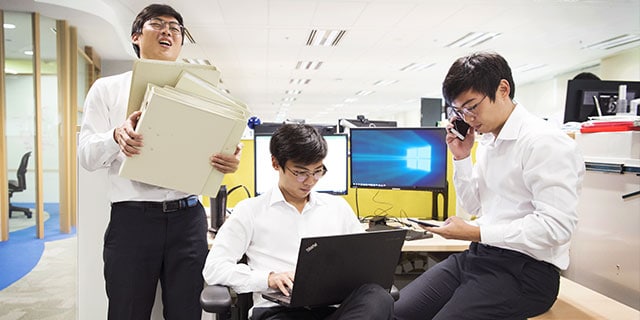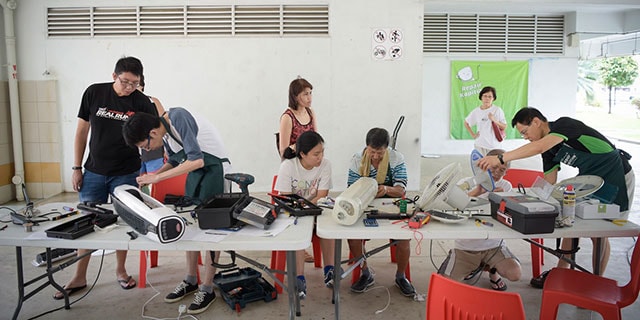4 Green Labels to Watch Out for During Your Next Grocery Haul
4 Green Labels to Watch Out for During Your Next Grocery Haul
If you have ever wondered what that logo of a tree or frog means, wonder no more.
When you are on a grocery run at the supermarket, how do you know which items to buy? Many among us go for specific brands because we recognise them immediately; some choose based on prices because every cent counts; while others look at nutrition facts because every calorie counts, too.
But have you noticed labels that you don’t recognise? Beyond barcodes and Halal certifications here, buying products with any of the following labels may just change the world for the better:
1. The Recycling Symbol
Here’s a fun fact that may win you the next pub quiz. The recycling symbol is like McDonald’s Golden Arches because everybody knows what it stands for — but what do the numbers mean?
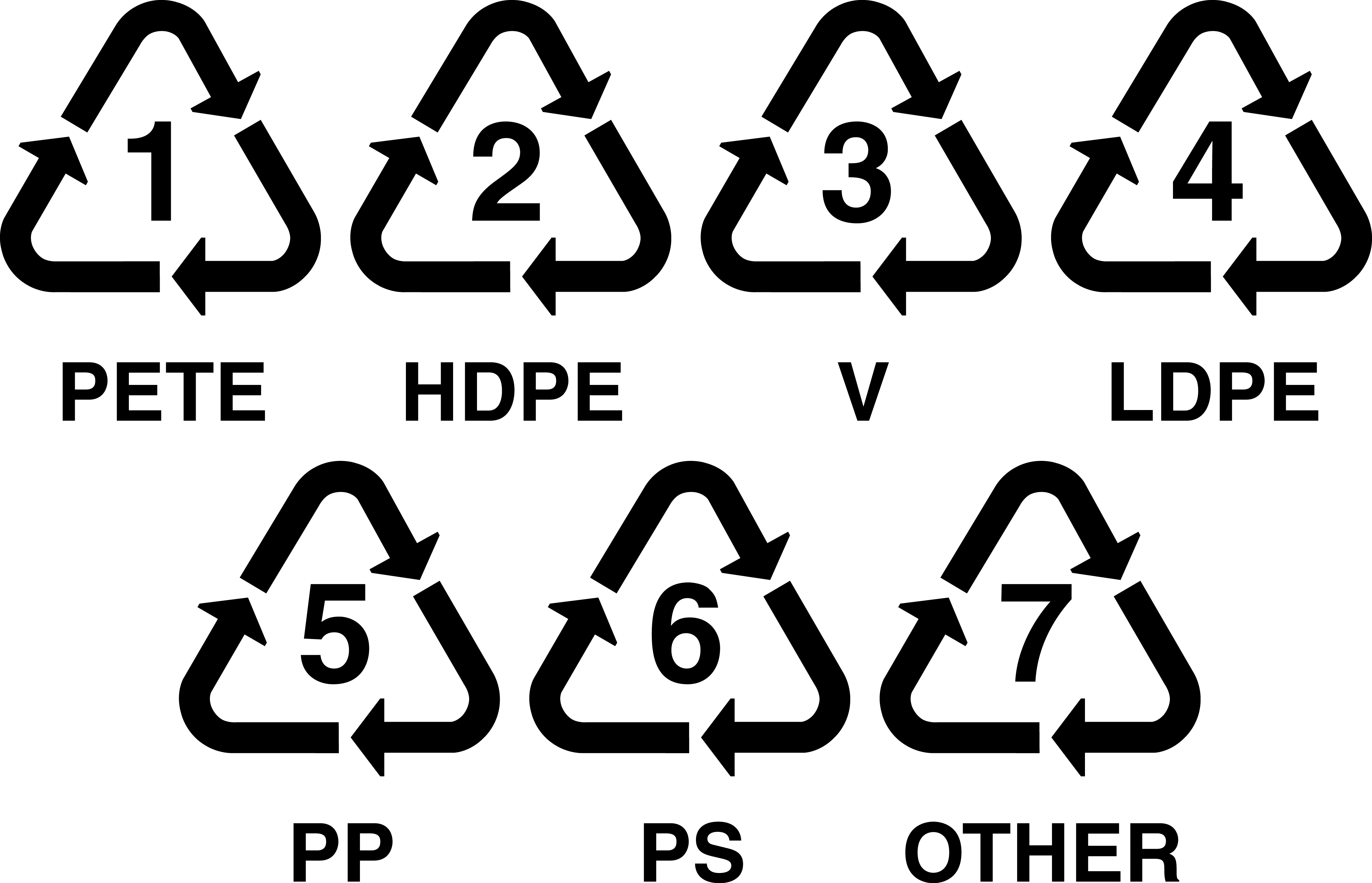
Plastics usually come with a number between “01” and “07”. The higher the number, the harder it is to recycle. The label “01” is most commonly found on single-use plastic water and soft drink bottles, and “07” includes everything from mobile phone cases to those massive plastic barrels on water coolers.
There is a whole host of reasons why plastics with higher numbers are harder to recycle, but it mostly comes down to different melting points, hazardous production chemicals and the cost involved within the same category.
Do note that this “ranking” system does not apply to materials like paper. The assigned numbers “20” to “22” are used to differentiate types of paper: “20” for cardboards, “21” for magazines and newspapers, and “22” for higher-quality office paper. Most paper products can be recycled regardless — but be reasonable! Reusing paper towels and napkins is just icky.
2. Rainforest Alliance Certified Logo
You may find the Rainforest Alliance Certified logo — look for the adorable frog — on items ranging from coffee, tea and chocolate to fruit juices and personal care products. With a relatively long history (it turns 30 this year), the purpose of the logo is to certify that forest companies and farms didn’t have to destroy an entire rainforest to keep us fed and comfortable.
Find out what you can do to save the rain forest with the Rainforest Alliance.
Moreover, the organisation also educates tourism businesses on conservation and performs on-site audits to make sure that they have minimal impact on the environment. To date, the organisation has about 42 million hectares of forest under protection globally — that’s nearly 600 times the size of Singapore.
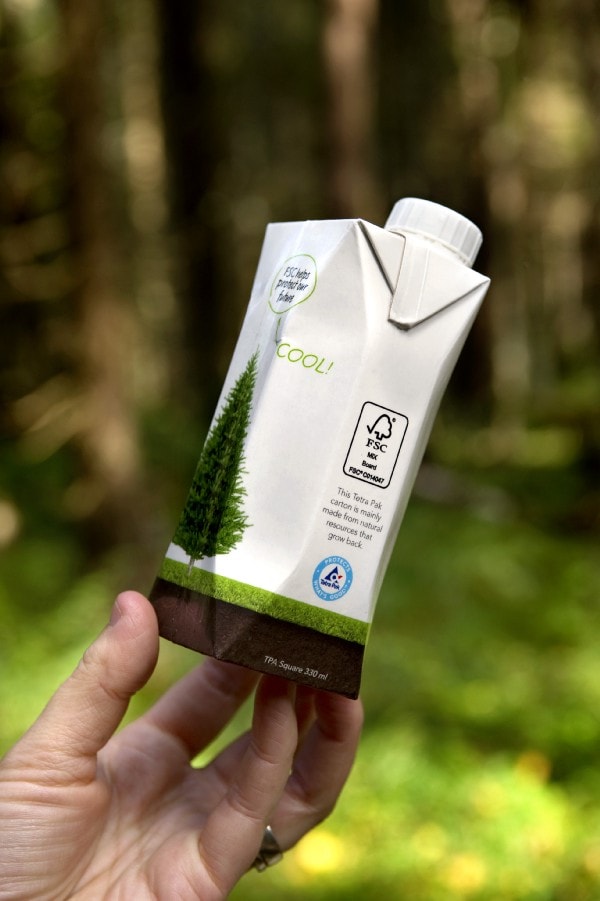
Forest Stewardship Council-certified (FSC) paper products can be used in beverage packaging. (Photo credit: Tetra Pak)
3. Forest Stewardship Council Logo
Grab the nearest tissue box — do you see a logo of a stylised tree with a tick on the side? That is an indication that it has been Forest Stewardship Council-certified (FSC). A wood or paper product with this label means that it was made with timber from a forest that has been evaluated and certified as being socially, economically and environmentally friendly.
The Germany-based organisation has a long list of criteria, which includes preserving the natural habitats of animals and ensuring the safety of lumberjacks, that needs to be met before a product can be FSC-certified. In fact, trees cut down to make that box of tissue may have been left to grow undisturbed for decades!
The FSC certification is taken so seriously that, when an Indonesia-based company was found to not meet FSC’s standards during the haze crisis in 2015, its products were removed from supermarket shelves in Singapore.
4. Marine Stewardship Council Logo
Did you know that some fishermen use bombs to stun or kill schools of fish, just because trawling the sea with nets takes too long? Such fishing practices will not fly with the Marine Stewardship Council (MSC).
The MSC is responsible for ensuring that fisheries leave enough fishes in the sea (so they can reproduce), comply with relevant laws and minimise environmental impact (which rules out abhorrent practices like blast fishing). Today, black pomfrets, bluefin tuna and tiger prawns rank among the most overfished seafood in the world — and our fishy friends need protection, too. This particular logo may be found on everything from tuna tins to packets of salmon.
5. Fairtrade International
Not all workers are treated equal. The International Labour Organisation estimates that 153 workers are involved in work-related accidents every 15 seconds globally. That is where Fairtrade International comes in.
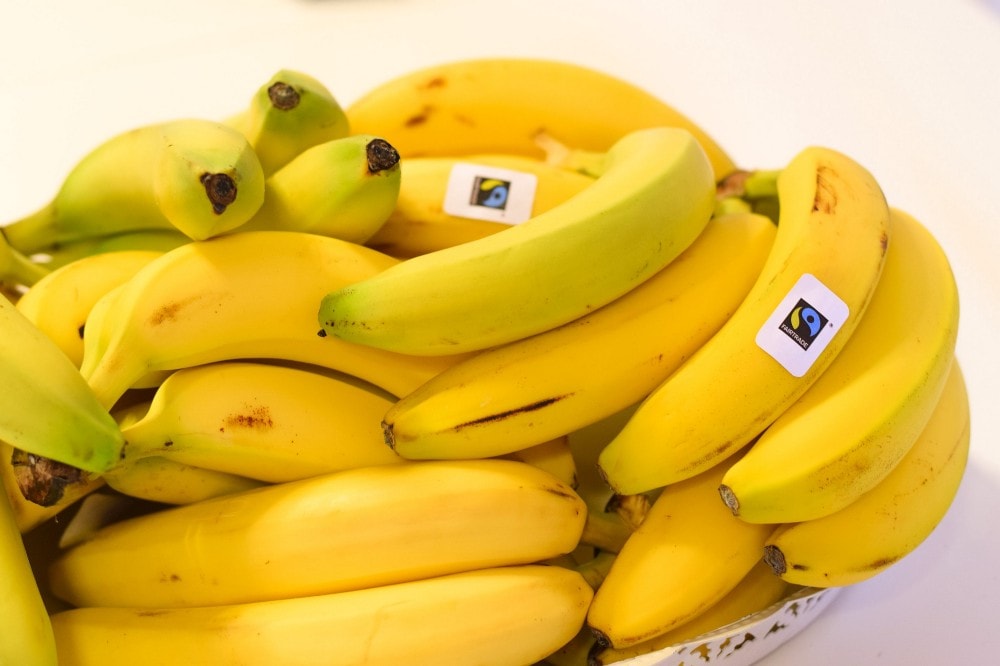
Bananas are one of the most commonly stocked Fairtrade commodities in supermarkets. (Photo Credit: Juliamh123/Wikimedia Commons)
Simply put, products with the FAIRTRADE logo were produced without forcing workers to operate in unsafe environments or accept unfair remuneration. It’s nice to know that no one had to suffer for that cup of coffee you had with breakfast or that bar of chocolate you indulged in after lunch.
And these examples are just the tip of the iceberg. More products today than ever before are sporting green labels and representing various causes — and the number of such products will only increase.
This trend benefits companies too.
“Businesses can much better deliver sustainable returns over the long term when they effectively contribute to a thriving and productive economy, a just and inclusive society, and a clean and healthy environment,” says Robin Hu, Head of the Sustainability and Stewardship Group at Temasek.
Patrick Cescau reveals how big business should react to “conscious consumers” and why companies need to redefine success.
Patrick Cescau, the former chief executive of Unilever Group, adds: “My view is that the conscious consumer movement is here to stay,” he shared during the recent Temasek European Advisory Panel in London.
If you look at the point of view of millennials, they want to know what is behind the brand, [such as] its values, what it does for society and community, etc. So products and services cannot simply be about functionality and emotions, but also about the needs of consumers as citizens.
Robin Hu and Patrick Cescau will be attending the Temasek International Advisory Panel happening on 18 September 2017 in Singapore. The panel brings together eminent business leaders and experts to share insights and perspectives on major political, economic, social and industry trends.

